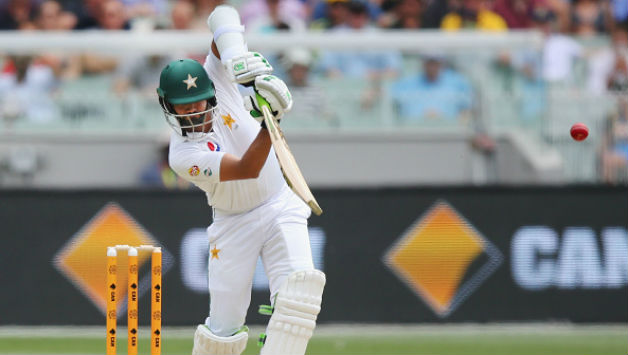
Cricket Country Staff
Editorial team of CricketCountry.
Written by Cricket Country Staff
Published: Dec 26, 2016, 04:14 PM (IST)
Edited: Dec 26, 2016, 04:14 PM (IST)


Pakistan, who though played excellently in the first Test of the series against Australia at Brisbane, lost it by 39 runs. They got numerous applauds for their fighting effort, that saw them scoring 450 in the final innings of a Test. Pakistan are yet to register a win in Australia since 1995. The previous Test was their 10th consecutive defeat in Australia. To bounce back in the series, Pakistan came up with a unique solution to bat on the bouncy wickets in Australia. Ahead of the second Test at Melbourne Cricket Ground (MCG), Pakistan players trained with marble-coloured granite slabs on their practise pitches. The coaching staff did the job of throwing balls off the slab to get extra bounce for batsman.
“Players feel practicing on the granite slab will help them on the bouncier pitches. Here the pitches themselves have so much bounce that I don’t feel I need to use a slab,” Pakistan opener Sami Aslam said during the pre-match press conference. This is not the first time Pakistan were using this method to get accustomed to Melbourne’s pace and bounce. Former Pakistan captain Javed Miandad and late coach Bob Woolmer have used this method in Australia. Sri Lanka also used the similar method recently before the start of their three-match Test series in South Africa.
Despite those methods, Pakistan ended up losing four wickets on Day One of the second Test. Batting first, Pakistan ended the first day’s play with their score of 142 for four. Jackson Bird got two wickets, while Josh Hazlewood and Nathan Lyon scalped one each. From Pakistani batting line up, opener Azhar Ali remained unbeaten throughout the day at 66. Only 50.5 overs were bowled before rain interrupted the day’s play. Azhar and Asad Shafiq will resume Pakistan’s batting on Day Two.
This website uses cookies so that we can provide you with the best user experience possible. Cookie information is stored in your browser and performs functions such as recognising you when you return to our website and helping our team to understand which sections of the website you find most interesting and useful.
Strictly Necessary Cookie should be enabled at all times so that we can save your preferences for cookie settings.
If you disable this cookie, we will not be able to save your preferences. This means that every time you visit this website you will need to enable or disable cookies again.
